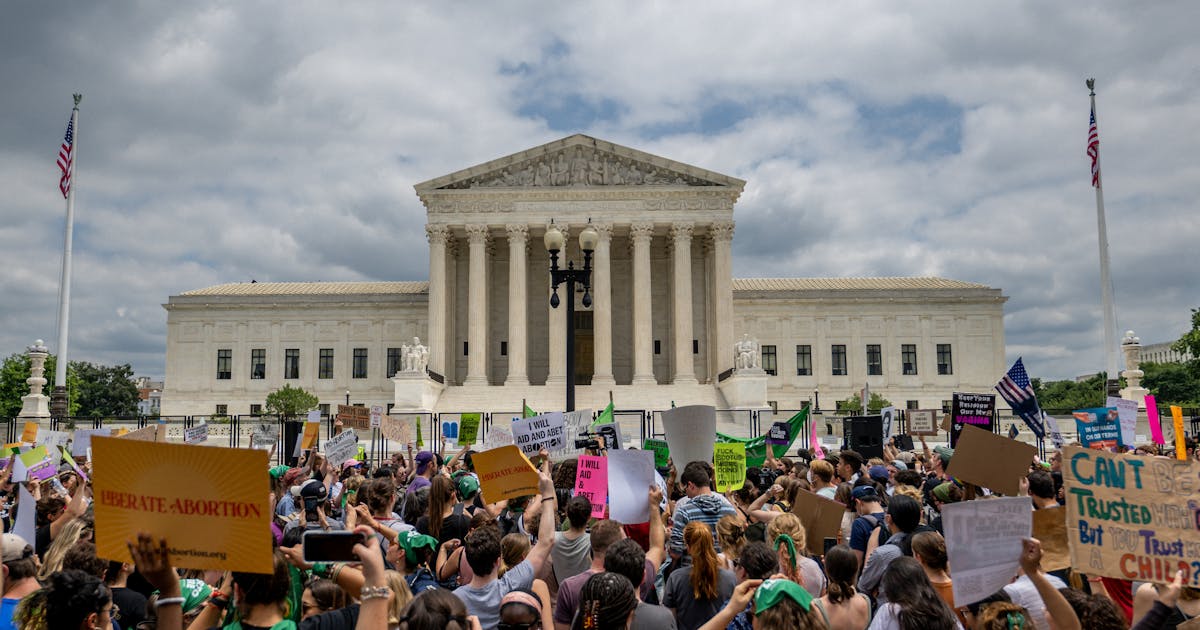Reminder that getting control of the house and senate could make stuff like this potentially get through
This proposal is not only one that expands the number of justices over time but alter things like the court’s shadow docket, require justices to release tax returns, and more



Judicial review begins where a person harmed by a law or executive order believes that the constitution does not convey to the government the power to enact such a law or order. They are in disagreement with the government. That disagreement is known in constitutional terms as an “case arisen under the constitution”, which places it squarely within the jurisdiction of SCOTUS and the rest of the judicial branch. Judicial review is the act of hearing and ruling on that question. Any response, including ignoring the case entirely, requires the courts to interpret the meaning of the constitution.
What part of “judicial review” have I misrepresented? What part of my understanding of “judicial review” is in conflict with your understanding?
My disagreement isn’t with the people you have declared experts: the historical figures cited by the essayist, and alluded to by you and the other person in this conversation.
My disagreement is with the essayist who has misrepresented their positions. I claim that their historical arguments do not support the modern, unnamed and unknown essayist. I make this claim, knowing that the “experts” agree that the various branches and entities within those branches should and do interpret the constitution as it applies to their functions.
I make this claim knowing the breadth of Article III Section 2. I know that the scope of SCOTUS function includes “all cases arising”. The only circumstances under which the court can act are where there is a disagreement; a case. They cannot and do not interpret the constitution outside of a “case”, but where a “case” exists, they are granted the power to decide it.
If the mayor serves you the contents of his septic tank and calls it “stew”, the courts will not intervene in the slightest if you agree that it is a “stew”. They have no power to interpret the meaning of “stew” until you suggest that the mayor’s definition is wrong. When you formally ask whether fermented sewage constitutes a stew, you give the courts the authority to answer that question.
Likewise, if the mayor raises an army, throws you out of your house, and gives it to them to use as a dormitory, the courts don’t care at all if you are satisfied with the mayor’s decision and allow him to do it. But when you reject the Mayor’s interpretation of the powers conveyed to him under the constitution, and you tell the courts you think he doesn’t have the authority to make that interpretation, you trigger Article III and grant the courts the power to make their interpretation.